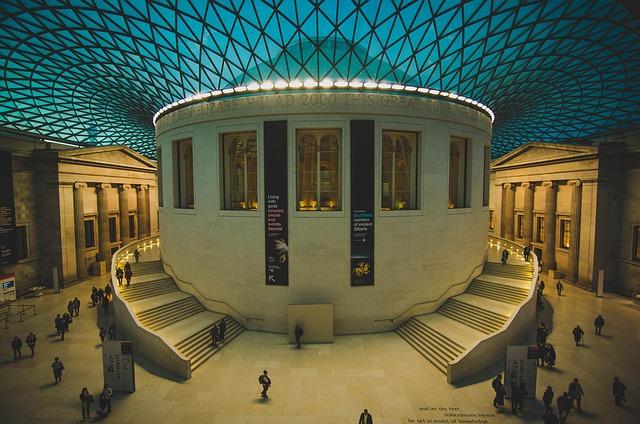In recent years,the landscape of fashion exhibitions in asia has undergone a notable transformation,reflecting the growing influence of the region on global style trends. as major brands increasingly turn their attention eastward,thes exhibitions have emerged as vital platforms for showcasing creativity,innovation,and cultural dialog. From immersive art installations to interactive runway shows, the allure of Asia as a hub for fashion has never been stronger. In this article, nss magazine delves into the reasons behind the surge in fashion exhibitions across the continent, exploring how brands are leveraging these events to engage with diverse audiences, connect with local markets, and redefine the boundaries of fashion in an era of rapid change. As we analyze the motivations, implications, and highlights of these burgeoning exhibitions, it becomes clear that Asia is not just a backdrop for fashion—it is becoming a dynamic stage where the future of style is being crafted.
Exploring the Surge of Fashion Exhibitions in Asia and Their Impact on Brand Visibility
The recent surge in fashion exhibitions across Asia marks a significant shift in how brands connect with their audience.This trend stems from a combination of factors that enhance brand visibility and consumer engagement. In cities like Tokyo, Shanghai, and Seoul, brands are seizing the opportunity to showcase their creative narratives through immersive experiences. These exhibitions not only allow designers to highlight their latest collections but also engage with the cultural fabric of the region, fostering a sense of community among fashion enthusiasts. The rise of digital marketing and social media presence has further fueled this demand, making it essential for brands to stand out in a crowded marketplace.
Moreover, the impact of these exhibitions is multifaceted, proving beneficial not only for brand exposure but also for collaboration and innovation. Brands are now engaging in partnerships with local artists and influencers, enhancing their authenticity and appeal. Highlighted in recent events,some key outcomes include:
- Enhanced Brand Storytelling: Through unique narratives,brands create emotional connections with audiences.
- Increased Sales Opportunities: Direct interactions during exhibitions often lead to a boost in immediate sales.
- Feedback and Insights: Engaging with consumers provides invaluable insights on preferences and market trends.
The Role of Cultural Heritage in Shaping Innovative Fashion Showcases
the integration of cultural heritage into fashion showcases has emerged as a pivotal element in the evolving narrative of the fashion industry. Brands are increasingly recognizing the importance of intertwining conventional aesthetics with contemporary design to create collections that resonate with a global audience. This fusion not only celebrates local artisanship but also elevates unique craftsmanship, offering consumers a deeper connection to the history and stories behind each piece. The colorful textiles, intricate patterns, and traditional techniques serve as a source of inspiration, enabling designers to craft experiences that are both innovative and reflective of their cultural roots.
Moreover, cultural heritage offers brands the opportunity to forge meaningful engagements with diverse audiences. By leveraging local customs and narratives, fashion exhibitions create immersive environments that captivate attendees with multigenerational stories and artistic expressions that transcend mere consumption. This strategic focus on heritage-driven storytelling has proven to be a successful marketing tool,as seen in major exhibitions across Asia that highlight regional identities and collective memories. As brands continue to explore this path,we can anticipate a vibrant dialogue between the past and the future,encouraging a lasting fashion landscape that honors its origins.
Strategic Recommendations for Brands Looking to Enhance engagement through Exhibitions
As brands delve deeper into the dynamic world of exhibitions, it’s essential for them to embrace innovative approaches that resonate with their target audience. Engaging experiences can be enhanced through the incorporation of interactive elements. These may include virtual reality booths that allow attendees to immerse themselves in a brand’s universe or live demonstrations that showcase product functionality in a captivating way. Additionally, fostering a community spirit can significantly elevate brand presence; hosting panel discussions or workshops featuring industry experts can foster knowledge sharing and cultivate strong customer relationships.
Moreover, leveraging data analytics to personalize marketing efforts can lead to substantial engagement improvements. By collecting and analyzing attendee data, brands can tailor their messaging and product offerings to meet specific consumer desires. Strategic partnerships with influencers also play a pivotal role; collaborating with well-known figures can amplify visibility and credibility. To illustrate the potential impact of these strategies, consider the following table showcasing recent exhibition trends:
| Trend | Impact on Engagement |
|---|---|
| Interactive Booths | 75% increase in attendee interaction |
| Workshops and Panels | 80% of participants report enhanced brand loyalty |
| Data-Driven Personalization | 60% higher conversion rates |
| Influencer Collaborations | 50% more social media mentions |
Wrapping Up
As the landscape of fashion continues to evolve, the rise of exhibitions across Asia underscores a significant shift in how brands engage with consumers and the industry at large. With the region becoming a focal point for creative innovation and cultural exchange, these exhibitions provide a vital platform for brands to showcase their unique narratives and foster deeper connections with audiences. From major city centers to emerging markets, the proliferation of fashion exhibitions signals a new era in which storytelling and experiential marketing take precedence. As we look ahead, it will be fascinating to see how this trend continues to develop and what impact it will have on the global fashion dialogue. For now, it is clear that Asia’s vibrant fashion scene is not just a spectator but an active participant in shaping the future of the industry.


